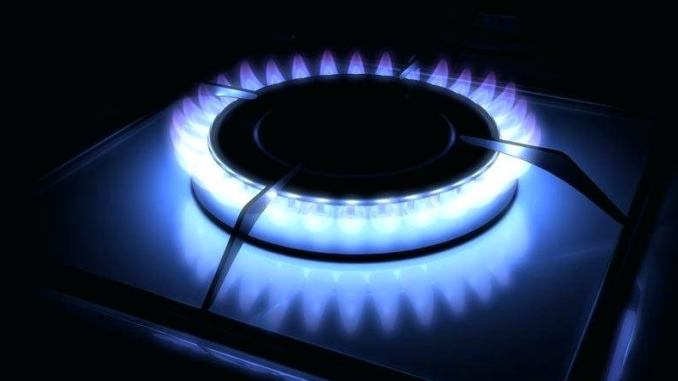
BY ELAINE GOODMAN
Daily Post Correspondent
Should the city of Palo Alto be able to take money it receives from customers paying their utility bills and use the funds to pay for other city services, such as police or libraries?
That’s a question that Palo Altans will answer when they vote on Measure L on the Nov. 8 ballot.
The city, which runs its own utilities, uses the money from customer bills to cover the costs of providing the utility service. But the amount from bill payments is sometimes more than the amount the city needs to cover its costs.
So the city transfers some of the surplus into the city’s general fund, which pays for things such as roads, parks, libraries, and the police and fire departments.
The city has been doing this for years. In the case of the city’s natural gas utility, about $7 million is transferred each year to the general fund to pay for the other services.
But a lawsuit filed against the city in 2016 has called the practice into question. Palo Alto resident Miriam Green sued the city, saying that the city was charging an illegal tax through its utility bills because it was collecting more than the cost to provide the utility service. The city would need voter approval to collect the additional funds, the lawsuit claimed.
The lawsuit, which became a class-action case, produced two results. A Santa Clara County Superior Court judge ordered the city to refund $12.6 million to natural gas customers whom the court said had been overcharged.
The two sides took the decision to California’s Sixth District Court of Appeal. But last month, they reached a settlement in which the city will pay $17.3 million to natural gas customers and Green’s lawyers.
The second result of the Green case is that the city placed Measure L on the ballot to see whether voters approve of transferring funds from the natural gas utility to the general fund to pay for general city services.
The measure would approve the city’s transfer to the general fund of up to 18% of its natural gas utility revenue, starting in 2023. This measure needs majority approval from voters to pass.
If voters reject Measure L, the general fund will no longer receive the approximately $7 million a year from the natural gas utility.
“If this measure is not approved, the city will lose a key funding source for basic services and reductions will be required,” proponents said in their argument in favor of Measure L.
In addition, because the city’s natural gas rates already include the cost of the transfer, approval of Measure L won’t increase gas bills, supporters said.
Measure L opponents said mixing funds collected for two different purposes is a bad practice.
“Even though this is a long-standing practice in the case of gas service in Palo Alto, that doesn’t make it a good idea,” opponents said in their ballot argument against Measure L. The opposition ballot argument was signed by Joe Dehn, chair of the Libertarian Party of Santa Clara County, and Palo Alto resident Alan Kaiser.
The city has argued that voters approved the transfer of utility money to the general fund in 1950. In addition, the transfer is a way for the city to get a return on its investment into the utility system, the city said.
In his decision in Miriam Green’s case, Superior Court Judge Brian Walsh wasn’t convinced by those arguments. The city has raised its utility rates several times since Proposition 26 passed in California in 2010, he noted. Prop 26 says that if a government fee is more than the amount needed to cover reasonable costs of the government service, that fee is actually a tax, requiring voter approval.
“To the extent the GFT (Palo Alto’s general fund transfer) is passed on to ratepayers, it is a tax,” Walsh wrote in his decision.
A Committee in Support of Measure L has raised $6,514 and spent $1,265, according to a campaign finance document filed with the city of Palo Alto. The filing covers activity through Sept. 24.
Among those who contributed to the Measure L campaign are council members Eric Filseth, who gave $500, and Alison Cormack, who donated $515.
Lisa Forssell, a member of the city’s Utilities Advisory Commission who is running for City Council, donated $258 to support Measure L.
City records show that no committee has been formed to oppose Measure L.

Just say no to this consumer rip-off. When the city learns to spend OUR money wisely, then we can talk again. I’m still waiting for any statement from the city or by a city leader to mention the concept of providing cost-effective services, fiscal responsibility, efficiency — anything thst shows they’re aware that we’re not cash cows.
Vote NO.
Moving moneys that were overcharged to other programs points to poor city management, it is not legal, and hurts the image we have of our city “leaders”. I also do not understand why the city (re: tax payers) have to pay to modify the train tracks. This cost should be paid by CalTrain and the state. There are many areas that require improvements in this city but the city is spending money in the wrong places. Time for change!
Can someone please state precisely what will happen to the 7 million dollars if Measure L fails? It seems self evident that the price of natural gas charged by the city will be decreased, but no one has come out and said whether it will, and if so, by what percent.
So, can someone please come out with it… will the cost of natural gas go down, and if so, by how much?